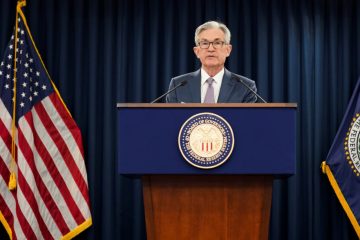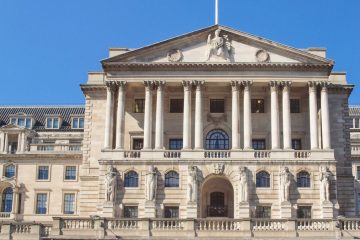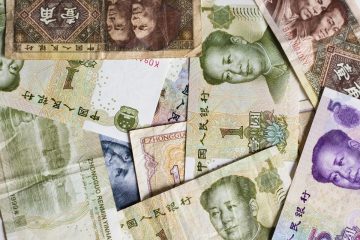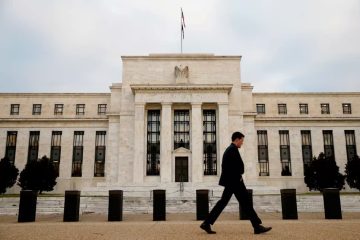More rate cuts are planned by Asian central banks

The spotlight is on the central bank decisions of South Korea, Indonesia, and Thailand, following the Philippines’ bold move to be one of the few central banks in Asia to cut rates before the Federal Reserve. Now, experts in the field are speculating about who will emerge as the next influential figure. The recent decision by the Bangko Sentral ng Pilipinas to lower its main policy rate last Thursday came as a surprise to many, ending a nearly four-year streak. The decision to reverse the 450 basis points of interest rate increases implemented between 2022 and 2023 reflects the Philippines bank’s efforts to control inflation, a challenge faced by several other central banks.
According to ING economists, the decision to implement an early rate cut in the Asia-Pacific region was considered a bold move. According to Robert Carnell, regional head of research for Asia-Pacific at ING, the decision to precede U.S. policy easing is quite bold. “The market’s relatively calm response to this decision indicates that other central banks in the APAC region may now be more inclined to contemplate a similar move,” he stated. The Philippines made a reduction the day after the Reserve Bank of New Zealand lowered its official cash rate by 25 basis points. Both of them were aligned with the People’s Bank of China, which had already implemented a series of cuts to stimulate a lackluster economy.
Observers have been closely monitoring the commencement of easing measures in Asia for quite some time now. Inconsistent economic data, which suggests uneven progress at home and a global slowdown, has made it difficult to predict the regional outlook. Many banks are being urged to stimulate growth as high interest rates appear to be having a negative impact. Many Asian currencies struggled and policymakers were hesitant to make any moves due to uncertainty about the start of the U.S. easing cycle. They didn’t want to risk unfavorable rate differentials and depreciation by acting before the Fed.
With conditions showing signs of improvement and the market already factoring in potential rate cuts by the Fed, several Asian banks may be considering easing their policies. However, economists warn that a sense of caution will likely prevail. “The Bank of Korea’s line-up is expected to be closely monitored,” commented Sarah Tan and Denise Cheok, economists at Moody’s Analytics. However, concerns about the increasing levels of household debt and rising house prices are likely to discourage the BOK from taking bold actions.
According to analysts at Deutsche Bank, there is a possibility that the Bank of Korea may decide to lower interest rates on Thursday. This is due to concerns over sluggish domestic demand and the increasing number of nonperforming loans, which indicate a need for a more accommodative monetary policy. “Even if the BOK goes against our prediction, it seems likely that they will choose to maintain a dovish stance, indicating a potential rate cut in October, at the very least,” stated Juliana Lee, an economist at Deutsche Bank.
According to analysts from Moody’s Analytics, the Bank of Thailand is expected to consider implementing rate cuts in 2024. This move could potentially provide some much-needed support to an economy that has been growing at a rate below its full potential since the onset of the pandemic. According to experts, Thailand’s economy has been affected by the high interest rates, leading to a decrease in private consumption. Additionally, consumer prices have remained low, and the baht is slowly recovering. These factors increase the likelihood of a potential interest rate cut.
Thailand’s second-quarter data, released on Monday, revealed an increase in growth compared to the previous year. However, there was a slowdown in growth compared to the previous quarter, indicating uneven momentum across the economy. Moody’s Analytics has predicted a 25-basis-point cut by the Fed in September, which it believes would boost the confidence of central banks in Asia to initiate easing measures sooner rather than later.
Staying updated on the actions of the Federal Reserve will assist in managing interest-rate spreads, which in turn can mitigate the potential impact on currencies and provide support to economies such as South Korea and Thailand, which have been grappling with sluggish domestic demand. According to Lavanya Venkateswaran, a senior Asean economist at OCBC, it is expected that Bank Indonesia will make similar moves to BSP, with a projected 50 basis points of cuts in the last quarter of the year. Although it is unlikely that the Indonesian bank will take any action before the Fed meeting due to its focus on maintaining stability in the rupiah, there is a possibility of adopting a more cautious approach in line with the United States, especially if foreign exchange stability is maintained.
OCBC predicts that there will be some differences in the actions taken by central banks in the Asean region. They anticipate that Bank Indonesia and Bangko Sentral ng Pilipinas will ease their policies this year and in 2025, while the central banks of Thailand and Malaysia are expected to maintain their current policies. The meeting is scheduled for Wednesday. Barclays economists anticipate that this week’s decisions will uphold the current state of affairs, despite the increasing likelihood of rate cuts in Asia. “We advise caution as we do not anticipate immediate action from other central banks following BSP’s lead,” noted economists from Barclays, including Brian Tan and Shreya Sodhani, in a written statement.
During BI’s meeting on Wednesday, there is a possibility of a cut, although Barclays believes that policymakers will require further assurance that Fed easing is imminent. The BI is expected to exercise caution when considering any early cuts, as there is a concern that the narrative of higher interest rates for a longer period of time may unexpectedly and abruptly resurface.
The attention this week will be on what Fed Chair Jerome Powell signals at the Jackson Hole gathering of central bankers. Any uncertainty regarding the Federal Reserve’s interest rate cuts could potentially impact policy perspectives in Asia. According to Nomura research analysts, Powell is not expected to explicitly discuss the rate cuts, but he may refer to recent economic data to demonstrate that the Fed can afford to be a little patient before taking action. However, he may also indicate a readiness to reduce rates if the labor markets worsen.









